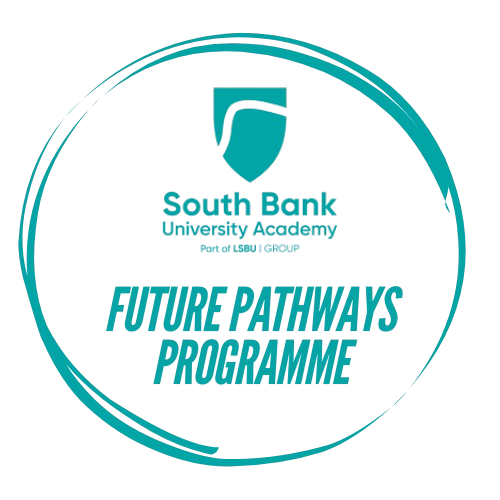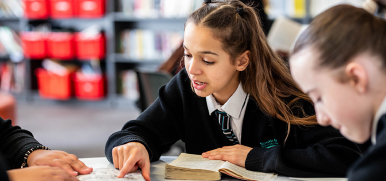
The Future Pathways Programme is an innovative career and education-focused initiative provided to all students studying at SBUA, aimed at helping them to explore different future opportunities in terms of higher education, employment, or vocational training. It connects students with various resources, mentorship, and guidance to help them make informed decisions about their careers and education after they leave school. The programme utilises the links SBUA has with the rest of the LSBU group.
Key features of the programme include:
1. Career Guidance: Students receive advice on potential career options based on their interests and strengths.
2. Workshops and Seminars: Students take part in workshops on CV writing, interview preparation, and career exploration.
3. Mentorship: Students are paired with mentors from LSBU and industries of interest, providing real-world insights and support.
4. University and College Partnerships: All students have the opportunity to partake in visits to universities and colleges to expose them to post-secondary education options.
5. Skills Development: Emphasis on developing practical skills such as problem-solving, leadership, and communication, which are valuable in both higher education and the workplace.
6. Work Experience and Insight Days: Students will be given opportunities to gain hands-on experience in their chosen fields.
The Future Pathways Programme helps students develop a range of skills crucial for both academic and professional success:
1. Career-Specific Skills:
- Technical Skills: Depending on the career path, the programme may offer training in industry-specific skills.
- Vocational Skills: Hands-on training in areas like engineering, health care, or digital design.
2. Critical Thinking and Problem Solving: - Encourages students to approach complex challenges creatively and analytically, preparing them for decision-making in their future careers.
3. Communication and Language Skills: - Focuses on improving both written and verbal communication, such as public speaking, report writing, and effective presentation.
4. Leadership and Teamwork: - Opportunities to lead group projects, manage tasks, or work collaboratively with peers help students develop leadership qualities and the ability to work in teams.
5. Time Management and Organisation: - Students learn to prioritise tasks, meet deadlines, and manage multiple responsibilities, which is important for balancing work, studies, and personal life in the future.
6. Financial Literacy: - Sessions include training on budgeting, saving, and understanding personal finances, helping students prepare for real-world financial management.
7. Resilience and Adaptability: - Helps students build emotional intelligence, stress management, and adaptability to thrive in dynamic work environments.
8. Digital Literacy: - The programme emphasise digital skills, including proficiency in using software, online research and social media management.
9. Entrepreneurial Skills: - Students are exposed to entrepreneurship, learning how to think innovatively, develop business plans, and manage small projects.
10. Interview and Job Search Skills: - Workshops on CV writing, job applications, and interview techniques help students prepare for their future job search.
These skills not only support academic and career readiness but also contribute to a student's overall personal development, preparing them for a successful transition from school to the workplace or higher education.


